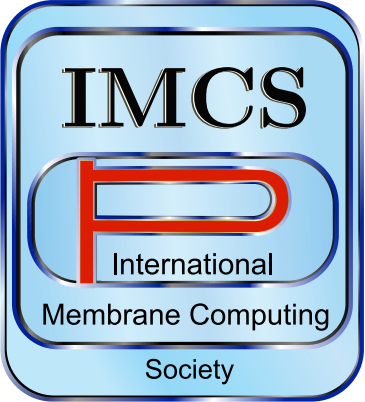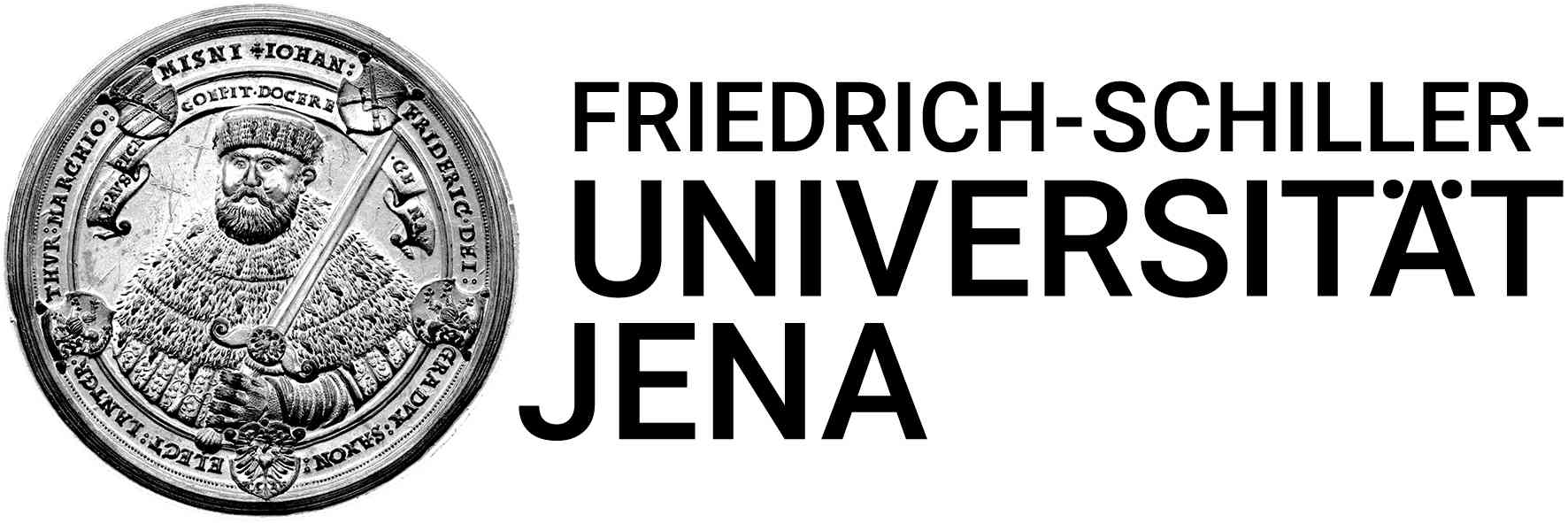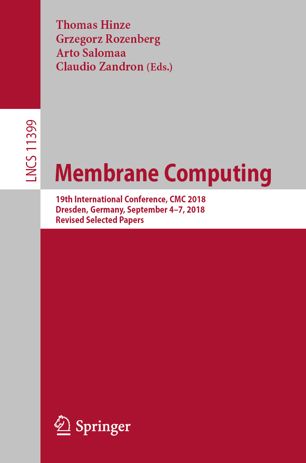CMC19 Final Proceedings Available
T. Hinze, G. Rozenberg, A. Salomaa, C. Zandron (Eds.)
Membrane Computing
19th International Conference, CMC 2018, Dresden, Germany, September 4-7, 2018, Revised Selected Papers
Series Lecture Notes in Computer Science, Vol. 11399, Springer Verlag, 2019
ISBN 978-3-030-12797-8
Aim and Scope

Membrane computing is an area of computer science aiming to abstract computing ideas and models from the structure and the functioning of living cells, as well as from the way the cells are organized in tissues or higher order structures. It deals with membrane systems, also called P systems, which are distributed and parallel algebraic models processing multisets of objects in a localised manner (evolution rules and evolving objects are encapsulated into compartments delimited by membranes), with an essential role played by the communication among compartments and with the environment.
From a systems biological point of view, membrane systems provide a discrete modelling approach to describe biological reaction systems composed of interconnected membranes. Each membrane delimits a spatial region in which chemical reactions can occur. Within a membrane, a multiset of objects represents molecular particles while dedicated term-rewriting mechanisms simultaneously execute reaction rules associated to each membrane. Supplementary rules can control the exchange of objects among membranes or even modify the membrane structure. Hence, capturing descriptional aspects of structural dynamics is seen as an advantageous feature of membrane systems.
Welcome
It is our great honour to host the International Conference on Membrane Computing for the second time in Germany. CMC19 aims at continuing the fruitful tradition of 18 previous editions enriched by some new ideas and inspirations emphasising multidisciplinarity and innovative capacity. The conference is intended to bring together researchers working in Membrane Computing and related areas in a friendly atmosphere enhancing communication and cooperation. CMC19 is organised by the Friedrich-Schiller University Jena under the auspices of the International Membrane Computing Society (IMCS). We are pleased to hold CMC19 at the four-star hotel venue NH Dresden-Neustadt, Hansastr. 43, D-01097 Dresden, Germany.
CMC19 receives financial support by Deutsche Forschungsgemeinschaft (German Research Foundation, grant HI 801/4-1).
Springer will sponsor the Best Student Paper Award (EUR 500.00) at CMC19.
Dresden is said to be one of the most beautiful and picturesque cities in Germany. The former Saxonian Residence and now the capital of the German free state Saxony with approximately 560,000 inhabitants belongs to the most visited in Germany with 4.3 million overnight stays per year. Along the Elbe river, the royal buildings are among the highly impressive buildings in Europe. Main sights are also the nearby National Park of Saxon Switzerland, the Ore Mountains and the countryside around Elbe Valley and Moritzburg Castle. The most prominent building in the city of Dresden is the Frauenkirche (Church of our Lady). Famous museums, fascinating exhibitions of art, exquisite vineyards, and many further cultural attractions complete the long list of outstanding sights worth to be visited in Dresden and its environment. Don't miss it and enjoy your stay.
You are cordially welcome to CMC19 in Dresden.
Jörn Behre
Thomas Hinze
Contact
Thomas Hinze
Friedrich-Schiller University Jena
Department of Bioinformatics
Ernst-Abbe-Platz 2
D-07743 Jena, Germany
Please do not hesitate to contact us if you have any question:![]()
Thomas Hinze (email: thomas.hinze@uni-jena.de)
Jörn Behre (email: mail@joern-behre.de)





